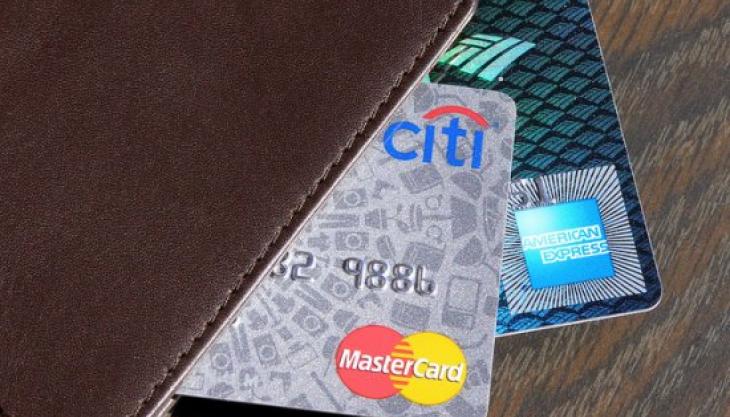How Credit Scores Are Calculated and 3 Ways to Improve Yours
Submitted by Rachel R on Mon, 02/02/2015 - 3:14pm

Credit scores determine credit card interest and impacts your finances
Image source: Flickr user Chris Potter
We all know that credit scores are three of the most important digits in our lives and that paying your bills on time will keep yours in good shape, but beyond that, how much do you actually know about how your credit score is calculated? Even if you always pay everything on time, your score may not be what it could and if you have to pick and choose between which bills you pay because money is tight, some choices will hit your credit score harder. Let's take a look first at the credit score calculation.
FICO scores are made up of five components:
- Your payment history
- How much you owe
- Your credit history
- New credit
- Types of credit
Payment history – This makes up 35% of your score and is exactly what it sounds like. Prompt payments made for the full amount you're required to pay will keep this part of your score optimal.
Amounts owed – This makes up 30% of your score and if you owe too much in proportion to your earnings, this can impact your score. With credit cards, charging no more than 30% of your credit line will help keep your score highest.
Length of credit history – This makes up 15% of your score and the longer your accounts have been open, the better for your FICO score.
New credit – This makes up 10% of your score and can be tricky. You don't want to get overextended and take on more than you can pay, but taking selected new offers can keep your score climbing. But you have to be careful, because older accounts in good standing count for more of the calculation.
Types of credit – This also makes up 10% of your score and will be higher if you have a diversified credit portfolio. There are three main types of credit: installment, revolving and open.
- Installment credit would be like a car loan or mortgage where you pay a set installment amount each month.
- Revolving credit is like a credit card or store card where you can make purchases and either pay the amount in full or a minimum required amount.
- Open credit is like a credit card that must be paid off in full each month rather than allowing you to just pay a minimum amount.
What FICO doesn't care about
Accounts that didn't require a credit check to open them will usually not show up on your credit report unless the accounts go delinquent and they go into collections. Prepaid “credit” cards won't show up nor will your debit cards. Medical bills and utilities are also not usually reflected on your credit report unless you fail to pay and these debts are put into collections.
Ways to improve your credit score
Your credit score is more than just a number, it determines how much you'll pay for certain necessities that tie fees to FICO scores. This includes auto insurance, homeowners insurance and home security services. It's now common also for some auto rental firms to run a credit check. A higher credit score allows you to get lower interest rates on new credit which saves you money in the long-run. Here are three ways to improve your score:
- Set up payment reminders so you don't run late on payments and try not to wait until the last minute to pay in case there are processing delays that can cause your payment to post late.
- Reduce your debt by paying more than the minimum on credit cards and don't swipe your card unless you can pay off what you're buying in full at month's end.
- Keep your credit report free of errors. You can get a free credit report once per year and should check it at least annually to clear up any accounts that aren't yours or other mistakes.
If your debts have grown out of control and you can't pay your bills and your circumstances are unlikely to reverse without an intervention, contact the law offices of John T Orcutt for a free consultation with one of our North Carolina bankruptcy experts to find out how we can help.
Debts Hurt! Got debt? Need help? Get started below!
Serving All of North Carolina
- Bankruptcy Attorneys Raleigh NC (North)
- Bankruptcy Attorney Fayetteville NC
- Bankruptcy Attorney Durham NC
- Bankruptcy Attorneys Wilson NC
- Bankruptcy Attorneys Greensboro NC
- Bankruptcy Attorneys Southport NC
- Bankruptcy Attorneys Wilmington NC
Bankruptcy Attorneys Raleigh NC (North)
6616 Six Forks Rd #203 Raleigh, NC 27615 North Carolina
Tel: (919) 847-9750

Bankruptcy Attorney Fayetteville NC
2711 Breezewood Ave Fayetteville, NC 28303 North Carolina
Tel: (910) 323-2972

Bankruptcy Attorney Durham NC
1738 Hillandale Rd Suite D Durham, NC 27705 North Carolina
Tel: (919) 286-1695


Bankruptcy Attorneys Greensboro NC
2100 W Cornwallis Dr. STE O Greensboro, NC 27408 North Carolina
Tel: (336) 542-5993

Bankruptcy Attorneys Southport NC
116 N Howe St. Suite A Southport, NC 28461 North Carolina
Tel: (910) 218-8682

Bankruptcy Attorneys Wilmington NC
116 N. Howe Street, Suite A Southport, NC 28461 North Carolina
Tel: (910) 447-2987
